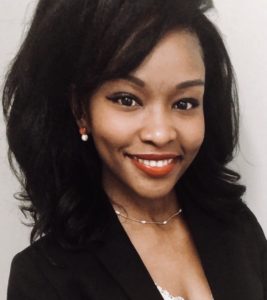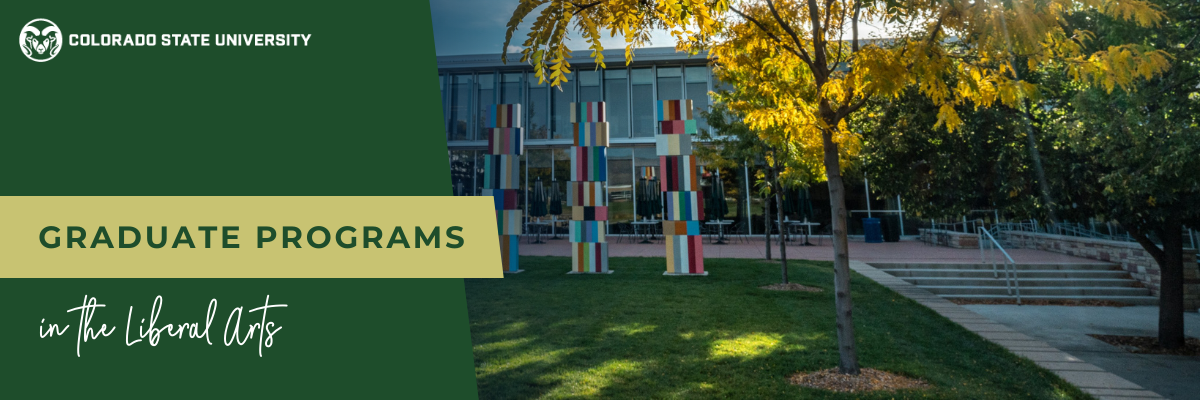By Peter Discoe
It was a circuitous path to Fort Collins for Julia Choolwe Munsaka, a Ph.D. student in CSU’s Political Science department. Born in Zambia, she received her undergraduate degree in her native country and obtained a master’s degree in media and communications from a university in Germany. A second master’s in international relations and diplomacy here in the United States followed. After a stint working in the private and public sectors, Munsaka’s interests grew to include the politics of climate change and natural disasters, particularly how these events shape and impact developing nations.
CSU’s political science department, with a focus on environmental policy and politics, was a perfect place to further her work.
How did your upbringing in Zambia influence your educational passions?
It gave me more exposure to a worldview and a desire to know why the colonizers came to Africa – which countries were colonized, who colonized whom? What did they get from you?
Growing up in Zambia, I became interested in world affairs and how governments and political systems affect one another. Our school syllabus was based on the British and European systems, so we had exposure to those schools of thought as well as our local education.

An undergraduate degree from the University of Zambia, a master’s in Germany, and another master’s in international relations and diplomacy in the United States, why were you drawn to study Political Science at CSU?
When I was studying my undergrad, I studied communications, but I still loved development studies, which has a lot to do with history and culture. I began to focus on theoretical perspectives and comparing developed countries with less developed countries. That led to my second master’s studying international relations and diplomacy issues. Realizing that the environment was often a root of diplomacy issues, it became apparent that when we talked about climate change, we spoke about it from a western world perspective. But how are we talking about it in the developing world? I then began looking at environmental regulations and how they affect country relations, particularly how developing countries are impacted. I started looking for a program focused on environmental policy, and CSU has one of the best programs in this growing field.
Geopolitical events impact more prominent groups increasingly. As climate change becomes a global problem, how do nations build coalitions to combat a problem that knows no political boundaries?
It isn’t easy. Here in the west, there’s picking and choosing where we decide to have compassion. When there is a disaster in Haiti, people say, “there are always disasters in Haiti.” Why don’t we show the same level of compassion to Haiti as we would to a rich country?
Building coalitions and combating problems with no political boundaries is very tough. We need further work on our environmental diplomacy and negotiations. We need a fair playing ground for all countries regarding assistance and humanitarian responses; we’re trying to save lives here and value no life over another.
We also must be more inclusive in our development and poverty reduction programs and come together to help protect poor people from these disasters and improve access to finances, resources, and the tools necessary to better respond to climate change.
You recently won an international humanitarian competition after teaming up with Impact MBA students. How was this collaboration process, working with peers from other departments?
Collaborating with students from CSU’s Impact MBA process was a fantastic experience. I found out about the challenge while doing a class in the communications department. The professor informed me about the challenge as I had previously expressed my research interests to her. I connected to Travis Maynard (our project advisor), who joined me with my teammates. We found out we had similar interests in our research and looked at the same issues, just from different perspectives, having come from Political Science and Business backgrounds. So, we put our ideas together, settled on a topic, and worked together to conduct some background reach, conduct interviews, and come up with a solution that led to us winning the challenge. It was CSU’s first time participating in the challenge. Having an all-female team come out on top was amazing because it was a chance to inspire and empower women in our careers and chosen fields. It showed the positive impact we can have when we put our minds together as women.
Your winning proposal was to develop and distribute “resiliency kits” for those impacted by disaster. How do your studies in Political Science help you achieve your goals of making this humanitarian program a reality?
My studies in political science are critical in helping to make this goal a reality. My main area of study in disaster risk reduction and response, the central area of study, has much in common with humanitarian supply chains, and the two work hand-in-hand. From my perspective in Political Science, I can understand and analyze the impacts of disasters such as those affected directly or indirectly, developmental and economic losses, concerns, and the like. Humanitarian supply chains respond to various disasters and are geared towards this. So, I believe my political science studies background helped us design a solution that can be efficient and based on the needs of those impacted.
The Ph.D. program in the CSU Department of Political Science offers a unique specialization in environmental politics and policy. Learn more about the Ph.D. on the department’s website.
